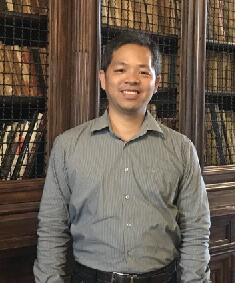
Department of Electronics Engineering & Institute of Electronics, National Chiao Tung University, Taiwan
Director of NCTU Artificial Intelligence and Multimedia Laboratory (AIMMLab)
Biography: Wen-Huang Cheng received the B.S. and M.S. degrees in computer science and information engineering from National Taiwan University, Taipei, Taiwan, in 2002 and 2004, respectively, where he received the Ph.D. degree from the Graduate Institute of Networking and Multimedia in 2008.
He is a Professor with the Institute of Electronics, National Chiao Tung University (NCTU), Hsinchu, Taiwan, where he is the Founding Director with the Artificial Intelligence and Multimedia Laboratory (AIMMLab). Before joining NCTU, he led the Multimedia Computing Research Group at the Research Center for Information Technology Innovation (CITI), Academia Sinica, Taipei, Taiwan, from 2010 to 2018. He has published more than 100 articles in journals and conferences. His research interest includes multimedia, artificial intelligence, computer vision, machine learning, social media, and financial technology.
He has received numerous research and service awards, including the 2018 MSRA Collaborative Research Award, the Outstanding Reviewer Award of 2018 IEEE ICME, the 2017 Ta-Yu Wu Memorial Award from Taiwan’s Ministry of Science and Technology (MOST), the 2017 Significant Research Achievements of Academia Sinica, the 2016 Y. Z. Hsu Scientific Paper Award, the Outstanding Youth Electrical Engineer Award from the Chinese Institute of Electrical Engineering in 2015, the Top 10% Paper Award from the 2015 IEEE MMSP, the K. T. Li Young Researcher Award from the ACM Taipei/Taiwan Chapter in 2014. He is APSIPA Distinguished Lecturer.
Speech Title: Industrial Innovations with Artificial Intelligence
Abstract: Artificial intelligence across industries is on the rise. Artificial-intelligence-powered solutions have been actively implemented all the way from product development to customer experience. However, many technical challenges remain to be addressed. For example, virtual try-on of clothes in the fashion industry is a fashionable technology for the user to virtually try a desired outfit but clothing is difficult to render with visually realistic results due to the nature it deforms and reflects light in folds and crevices. This talk shares our experiences in working on innovative artificial intelligence solutions to overcome key technical challenges and turn the innovations into practical industrial applications.


